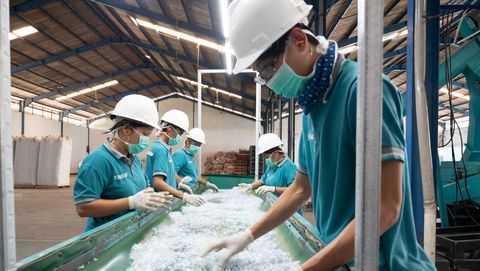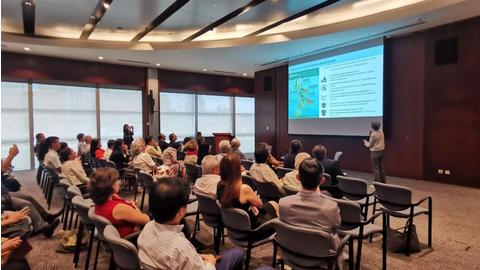Companies news
Rethinking The Plastics Value Chain

Circulate Capital, a USD100 million impact fund is leveraging capital to solve the problem of plastic waste.
In a 2015 report, the U.S. NGO Ocean Conservancy found that more than 50% of plastic waste entering the oceans came from five countries: namely China, Indonesia, the Philippines, Thailand and Vietnam.
Waste management in South East Asia is still in its infancy with most waste going to landfill or being incinerated, and recycling being largely led by informal wastepickers. Whilst there is a huge opportunity for R&D into recycled new materials, inventing new ways to collect and process waste is key. This is the ambition of the initiative set by Rob Kaplan who reached out to businesses to deploy capital for promising companies in the region. Leapfrogging to a value chain of “collecting, sorting, recycling” thanks to innovative technological solutions and partnerships would turn the region into a leader in waste management.
Plastic is the least recycled material compared to paper or aluminium. The fund, based in Singapore, has just announced its first two investments in companies located in India and Indonesia which recycle plastic into circular packaging and textiles. Those companies do not only need money but, most importantly, access to market. Circulate Capital's added value also lies in that second component, as it connects these companies to bigger supply chains.
Working with experts and NGOs
Circulate Capital partnered with experts and NGOs such as The Circulate Initiative to build impact measurement data that could become ESG**/SRI*** metrics. Danone, a French Chamber of Commerce in Singapore member, is a joint investor together with other consumer good companies such as Unilever and Coca-Cola. Recognising their contribution to the plastic waste problem, these businesses want to be part of the solution which they can then apply into their own supply chain. Will Coca Cola achieve their objective of collecting and recycling a bottle or can for everyone they sell by 2030?
Their commitment is one of many ambitions commitments businesses have made guided by the 17 global goals set by the U.N. to be achieved by 2030. Considering the scale of the plastics problem, a partnership approach (Goal 17) is one where businesses stand the best chance of succeeding.
*Of the plastic waste produced between 1950 and 2015, only 9 percent was recycled. Source Geyer et al. (2017) in Science Advances. Science Advances 3(7):e1700782 · July 2017
**ESG Environmental, Social and Governance factors which are taken in into account for investment processes and decision making.
***SRI Socially Responsible Investment defines investment decisions based on ethical and moral guidelines.
© Written by Manuela Moollan, Sustainability & Impact Consultant


